Disaster Ready: Preparing Nurses for Crisis Response
February 11, 2025
2:00 PM - 3:00 PM (ET)
Webinar Details
"Disaster Ready" explores the critical role of nurses in disaster management and the importance of comprehensive disaster nursing education. The webinar explores the current state of disaster preparedness, response, and recovery in nursing, focusing on education needs, workforce readiness, and community resiliency. The webinar addresses significant gaps in disaster nursing education and offers strategies to bridge the gap between theoretical knowledge and the practical application of the AACN Essentials, particularly Domain 3: Population Health, 3.6 Competency: Advance preparedness to protect population health during disasters and public health emergencies.
Outcomes:
- Understand the critical role of nurses in disaster management, including their multifaceted responsibilities in emergency preparation, response, and recovery.
- Recognize the value of Academic Service-Learning (AS-L) in enhancing disaster nursing education by integrating theoretical knowledge with practical community service experiences.
- Identify the key components of effective disaster nursing curricula, including active learning approaches, simulation-based training, and collaboration with community organizations, such as the American Red Cross.
Note: Recording of the webinar will be available soon after the webinar airs. Visit AACN's On-Demand Webinars to watch.
Speakers
Speakers
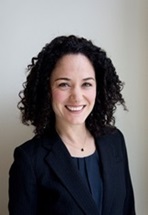 Shawna Sisler, PhD, MS, MA, MAPP, APRN, CPNP-PC, PMHS
Shawna Sisler, PhD, MS, MA, MAPP, APRN, CPNP-PC, PMHS
Assistant Professor (Clinical)
University of Utah
Dr. Shawna Sisler brings extensive expertise in population health, pediatrics, and mental health to her role in nursing education. Her academic background includes a PhD in Nursing Science from the University of Utah, an MS in Nursing from the University of California, San Francisco (UCSF), and additional Master's degrees in Applied Positive Psychology and Counseling from the University of Pennsylvania and Santa Clara University, respectively. As a passionate community advocate and changemaker, Dr. Sisler spearheads innovative approaches to Utah’s behavioral health integration and social determinants of mental health in rural and frontier communities. She is the Principal Investigator for the HRSA-funded Utah Rural Opioid Healthcare Consortium - Collaborative Care Model (UROHC-CCM) grant, which aims to reduce opioid usage and dependence in Carbon, Emery, and Wayne Counties - areas in east-central Utah with some of the highest rates of opioid-related deaths in the state. In this role, she directs research and clinical strategies, collaborates with rural community clinics, and manages the project's financial and administrative aspects. Additionally, Dr. Sisler co-leads redesign efforts in the population health vertical at the College of Nursing, contributing to the shift toward competency-based education. Dr. Sisler's commitment to innovative healthcare solutions and community advocacy extends beyond her academic work, as she serves as a long-time volunteer and Loaned Nurse Executive for the American Red Cross, working directly under the Chief Nurse on their Nursing and Health leadership team at the National Headquarters.
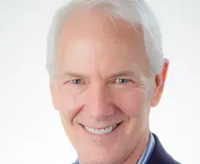
Richard MacIntyre, PhD, RN, FAAN
Professor
Samuel Merritt University
Dr. Richard MacIntyre is Professor and Director of the RN to BSN Program at Samuel Merritt University. He is also a board member at TriState College of Acupuncture in NYC, a member of the Advisory Council on Policy, STTI, and a member of the Nursing Council at Western Governors. He was a Robert Wood Johnson Executive Nurse fellow where he focused on innovative curricula, including standardized curricula for informatics.
Tags
Teaching Planetary Health During the Anthropocene Epoch
September 26, 2024
2:00 PM - 3:00 PM (ET)
Webinar Details
This webinar is hosted by AACN’s Faculty Leadership Network (FLN).
The Anthropocene is a geological epoch acknowledging human activity's influence on the planet's climate and ecosystem. It recognizes that human actions have been the primary factor affecting the environment, both locally and globally, for the past couple of centuries and will continue to do so in the foreseeable future. Currently, communities worldwide are facing new health challenges related to significant fluctuations in temperature. These have led to droughts, floods, changes in air quality, and unexpected variations in insect and rodent disease vectors. Unfortunately, many nursing students lack the knowledge, experience, or skills to collaboratively respond to these complex health challenges emerging in the 21st century.
Therefore, there is a need to re-evaluate the curriculum to provide fresh insights into new health challenges related to living and working in the Anthropocene. The purpose of this presentation is to describe how a Planetary Health lens can enable an understanding and appreciation of the critical linkages, cause-effect relationships, and feedback loops between environmental change and human health in the Anthropocene epoch.
Objectives:
- Define Anthropocene epoch.
- Describe how a Planetary Health lens will enable an understanding and appreciation of the critical linkages, cause-effect relationships, and feedback loops between environmental change and human health.
- Identify Anthropocene-related diseases based on The Centers for Disease Control’s (2022) “Climate Effects on Health” diagram.
- To re-evaluation of the nursing curriculum to include skills for real-world nursing practice in the Anthropocene Epoch
Note: Recording of the webinar will be available soon after the webinar airs. Visit AACN's On-Demand Webinars to watch.
Speakers
Speaker
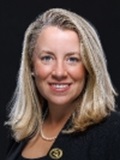
Sarah Oerther, PhD, MEd, RN, FNP-BC, FNAP, ANEF
Assistant Professor
Goldfarb School of Nursing
Barnes-Jewish College
Sarah Oerther is an Assistant Professor at Goldfarb School of Nursing at Barnes-Jewish College. To promote climate resilience, Dr. Oerther seeks to create culturally appropriate tools that can help individuals assess their risk and take necessary action to protect their health. By doing so, her program of research is expected to reduce the economic burden caused by preventable climate-related illnesses and ensure a healthier and more productive society. She is currently part of the 2024 cohort for Environmental Health Research Institute for Nurse and Clinician Scientists (EHRI-NCS) and was recently selected as a CHARTER fellow for 2024 with the Woodruff Health Sciences Center at Emory University.
Tags
Environmental Health: Perspectives on the Nursing Role
February 27, 2024
3:00 PM - 4:00 PM (ET)
Hosted by AACN's Research Leadership Network (RLN)
Webinar Details
During this webinar, participants will hear one nurse’s journey from the bedside to environmental health leader, explore resources from the National Environmental Education Foundation and discuss opportunities for research in the environmental health space.
Objectives:
- Understand the role nursing plays in promoting environmental health.
- Explore resources for healthcare providers from the National Environmental Education Foundation.
- Identify and articulate at least two opportunities for nursing research in the environmental health field.
Note: Recording of the webinar will be available soon after the webinar airs. Visit AACN's On-Demand Webinars to watch.
Speakers
Speakers
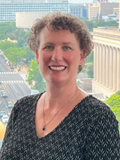
Christy Haas-Howard, MPH, BSN, BA, RN, AE-C, NCSN
Program Director, Health
National Environmental Education Foundation (NEEF)
Christy Haas-Howard oversees the development, execution, and evaluation of health initiatives related to the environment. She collaborates with the conservation and K-12 education teams to identify priority areas of common interest to maximize resources and impact. As an experienced health care provider, she tracks emerging trends in the health and environment space, recognizing and amplifying the opportunities to create greater health equity and environmental justice. Christy comes to NEEF with over 17 years as a registered nurse in the school setting. She has been asthma educator-certified since 2009 and has led various school-based asthma programs at the local and state level. She has also worked at the national level to cultivate an increase in school nurse’s knowledge and skills related to asthma care. Christy has presented and published on asthma and the upstream benefits of addressing environmental exposures and climate change. Her other previous projects include supporting a pilot air quality sensor network and health literacy project in Denver, CO, and implementing an air quality and asthma literacy Environmental Health Nurse Fellowship. Christy holds a BA in Economics from Claremont McKenna College, a BS in Nursing from Metropolitan State University, Denver, and a MPH from the Colorado School of Public Health. She enjoys gardening, playing games with her family, walking her dogs, and hiking in the beautiful Rocky Mountains.
Tags
Engaging Nurses in Shaping Policy to Address Health Disparities
June 06, 2023
2:00 PM - 3:00 PM (ET)
Hosted by the Research Leadership Network.
Webinar Details
Nurses can significantly impact population health through public policy. During this webinar, Mayor Sofia Aragon shares how she is working to develop local policy to address health disparities among residents exposed to environmental exposure due to airport operations in her city and the region.
Objectives:
- Define the need for policy to address environmental exposures and health disparities
- Discuss examples of public policy to mitigate environmental exposures to populations living near an airport
- Demonstrate how to implement local, state, and federal policy
Note: Recording of the webinar will be available soon after the webinar airs. Visit AACN's On-Demand Webinars to watch.
Speakers
Speakers
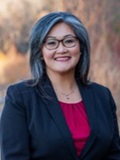
Sofia Aragon, JD, BSN, RN
Executive Director, Washington Center for Nursing
Mayor, City of Burien
Sofia Aragon is the executive director for the Washington Center for Nursing and Mayor for the City of Burien. As Washington State’s nursing workforce center, WCN works to address the nursing shortage. Public policy is her passion. In her previous role as Governmental Affairs Advisor for the Washington State Nurses Association, she represented registered nurses, ARNPs United of Washington, and the School Nurse Organization of Washington. She advocated for legislation on workplace safety, full state adoption of the Affordable Care Act, higher education and public health funding, banning toxins in the environment, racial equity, and other issues. She was elected to the Burien City Council in 2019 and elected Mayor in 2022. As Chair of the Burien Airport Committee, she influences regional, state, and federal legislation to mitigate the health impact of exposure to communities by SeaTac International Airport. Most of Washington state’s communities of color live within a 10-mile radius of SeaTac airport. She partners with other cities, public health and community-based organizations to lessen exposure from the airport and health disparities among communities living and working near the airport. She also voted to pass city ordinances for environmental preservation and addressing climate change, such as requiring the use of compostable products, a tree ordinance, and a city Climate Action Plan. She earned a BA in Economics from UW-Seattle, a BSN in Nursing from Seattle University, and a Juris Doctor from Loyola University-Chicago School of Law.